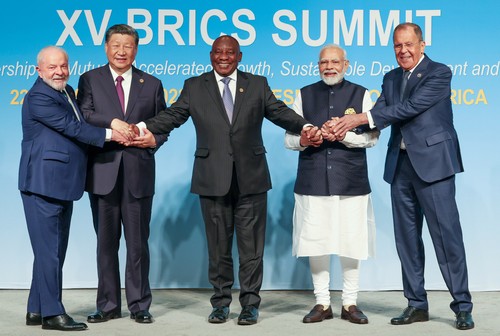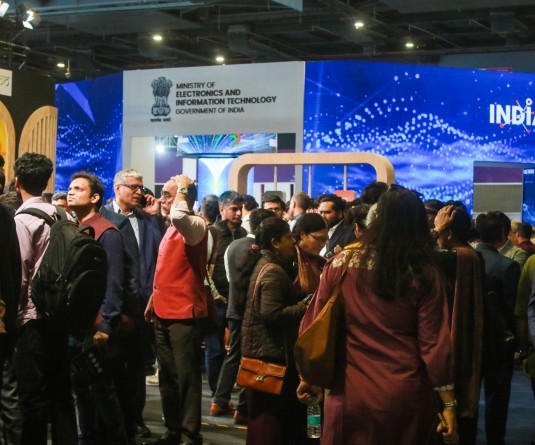IANS Photo

New Delhi, August 24 (IANS) BRICS nations on Thursday called for multilateral financial institutions and international organisations to play a constructive role in building global consensus on economic policies and preventing systemic risks of economic disruption and financial fragmentation.
The grouping also called for Multilateral Development Banks (MDBs) to continue implementing the recommendations which should be voluntary within MDBs governance frameworks, from the G20 Independent Review Report on MDBs Capital Adequacy Frameworks to increase their lending capacities, while safeguarding MDBs long-term financial stability, robust creditor rating, and preferred creditor status.
These observations were made in the Johannesburg Declaration, which was released after the culmination of the three-day long BRIC summit.
The document said this in the light of the fact that there is unbalanced recovery from the shock and hardship of the pandemic is aggravating inequality across the world.
“The global growth momentum has weakened, and the economic prospects have declined owing to trade fragmentation, prolonged high inflation, tighter global financial conditions, in particular the increase in interest rates in advanced economies, geopolitical tensions and increased debt vulnerabilities.”
The BRICS nations said that multilateral cooperation is essential to limit the risks stemming from geopolitical and geoeconomic fragmentation and intensify efforts on areas of mutual interest, including but not limited to, trade, poverty and hunger reduction, sustainable development, including access to energy, water and food, fuel, fertilisers, as well as mitigating and adapting to the impact of climate change, education, health as well as pandemic prevention, preparedness and response.
It also noted that high debt levels in some countries reduce the fiscal space needed to address ongoing development challenges aggravated by spillover effects from external shocks, particularly from sharp monetary tightening in advanced economies.
“Rising interest rates and tighter financing conditions worsen debt vulnerabilities in many countries. We believe it is necessary to address the international debt agenda properly to support economic recovery and sustainable development, while taking into account each nation’s laws and internal procedures.
“One of the instruments, amongst others, to collectively address debt vulnerabilities is through the predictable, orderly, timely and coordinated implementation of the G20 Common Framework for Debt Treatment, with the participation of official bilateral creditors, private creditors and Multilateral Development Banks in line with the principle of joint action and fair burden-sharing.”
The grouping reaffirmed the importance of G20 to continue playing the role of the premier multilateral forum in the field of international economic and financial cooperation that comprises both developed and emerging markets and developing countries where major economies jointly seek solutions to global challenges.
“We look forward to the successful hosting of the 18th G20 summit in New Delhi under the Indian G20 presidency. We note the opportunities to build sustained momentum for change by India, Brazil and South Africa presiding over the G20 from 2023 to 2025 and expressed support for continuity and collaboration in their G20 presidencies and wish them all success in their endeavours.
“Therefore, we are committed to a balanced approach by continuing to amplify and further integrate the voice of the global South in the G20 agenda as under the Indian Presidency in 2023 and the Brazilian and South African presidencies in 2024 and 2025,” BRICS document said.






